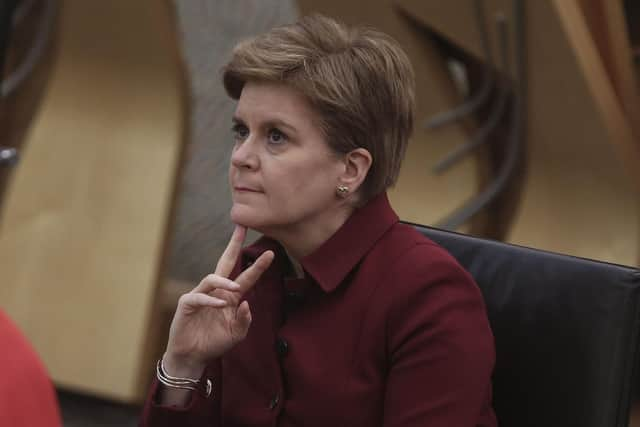Scotsman comment: Indyref2 faces a new political landscape
The First Minister has rightly been categorical in stating such a vote must be legal, but the UK government has been equally unwavering in ruling out a deal along the lines of the 2012 Edinburgh Argeement that set the stage for 2014’s poll.
Ms Sturgeon may therefore propose a vaguer question along the lines of whether the Scottish Government should seek to enter negotiations with the UK government on independence. Even this, however, may be seen as veering into realms of reserved matters and illegality.
Advertisement
Hide AdAdvertisement
Hide AdIf a purely consultative or advisory referendum along these lines did go ahead, it is likely that many opponents of independence would simply boycott the poll and thereby render it meaningless.


The political landscape has indeed changed radically since the signing of the Edinburgh Agreement, but not necessarily in ways that favour another referendum.
In 2012 there had not been a vote on independence eight years previously, and the SNP under Alex Salmond had managed to secure a majority among MSPs. His party did so by demonstrating a degree of competence in government.
Ms Sturgeon failed to secure a majority of SNP MSPs in 2021, relying instead for majority support for independence on the Scottish Greens, who secured 35,000 votes.
The First Minister’s administration is dogged by accusations of incompetence, despite the devolution of more “levers” of power over taxation and welfare.
Meanwhile, former Prime Minister Theresa May’s protest that “now is not the time” still seems justifiable. Unlike in 2012, Scotland and the rest of the UK are grappling with recovery from the coronavirus pandemic, a war in Europe, and a crisis in the cost of living.
Given that the stars do not seem aligned, why the rush? Some argue that a vote for independence would be far less likely under a Labour government at Westminster than under a deeply unpopular Tory one.
If Ms Sturgeon fails to secure a legal and meaningful referendum, no one could argue as she leaves the stage that it was for want of trying.